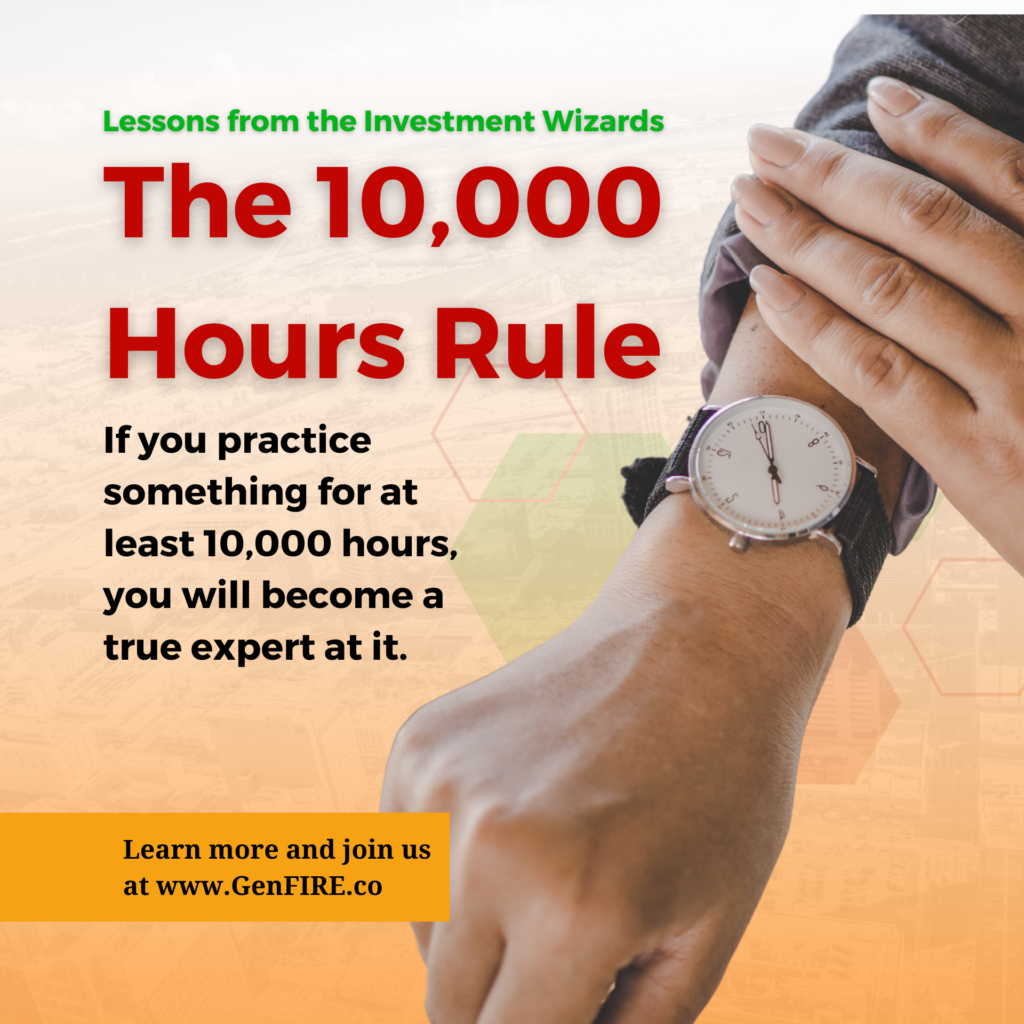The Road to 10,000 Hours
June 28, 2023

In his book Outliers, Malcolm Gladwell introduced the concept of the “10,000 hours rule,” pointing out that The Beatles put in an estimated 10,000 hours of practice playing in Hamburg in the early 1960s, Bill Gates put in 10,000 hours of programming work before founding Microsoft, and the most talented violinists put in 10,000 hours of practice by the age of 20. By dedicating significant time to their studies, these individuals became experts in a given field.
While the 10,000 hours rule is more art than science, it should be generally expected that the more work you put in, the better you will be at any given thing. Can you become an Investment Wizard in 10,000 hours? It sounds daunting but you absolutely can. Let’s break down the path to actually doing it.
Say, for example, you take your time, spending only an hour a day researching and investing. At this rate, you’ll gradually master the trade in just over 27 years. While that may sound like a very long time, in the grand scheme of life, it isn’t. Consider this fact: 99.7% of Warren Buffett’s wealth was generated after he was 50 years old. That interim period of time he invested in mastering his art was rewarded in exponentially splendid fashion. Now, let’s take another example. If, by chance, your full-time job is related to finance and investing, where some positions entail 12-hours workdays or longer, you may well become a Wizard in as quickly as two years. It’s up to you to decide the pace at which you become an expert at investing – or for that matter anything.
Now, here’s some encouragement: You don’t even need to have spent the full 10,000 hours to begin discussing and understanding a topic intellectually. Business coach Josh Kaufman explains that people learn new things most quickly in the first 20 hours of engaging with it. In beginner’s math, you learn counting, operations, and perhaps some algebra—some of the most crucial foundational tools you need when you move on to geometry or calculus. You also see this when you learn a new language. The first 20 hours you may spend learning some basic vocabulary, grammar, and syntax. You may not understand anything initially, but within the first hours, you’ll acquire the tools and fluency you need to deepen your understanding, whether by learning more vocabulary or practicing in conversations. You can become fluent in the language quickly and and an expert over time.
The same process applies too investing. There may be some terms or concepts that you don’t understand right now. That is completely normal. You may be asking yourself, What is a bond? What is an option? Who is Warren Buffett? That too is normal. The hardest part is getting started. Within the first 20, 100, or 1000 hours, you will develop fluency in investing; you will understand the basic terminologies, asset classes, and strategies. Then, all you will need to do is perfect your craft and walk forward on the steady path to wizardry.
